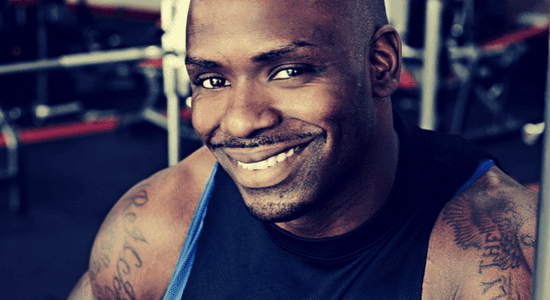The idea of following your passion seems so romantic: You became fed up with a desk job that didn’t make you happy, but you were passionate about exercise and helping people change their lives. So you became a personal trainer, because life is all about following your passion! Sound familiar?
Telling someone to “follow your passion” is very counterintuitive and also the most poorly given, yet well-intentioned axiom ever. But here's the cold, harsh reality: In the personal training industry, simply following your passion is a good way to be eaten alive and may actually be a recipe for disaster.
In fact, I tell most of my mentees to not follow their passion. And I'm about to tell you why.
Did the self-help books get it all wrong?
Most people I know became personal trainers because exercise and being fit and healthy were their passion. But what often happens in this situation is that these people don't have enough of something called career capital.
Career capital is a term that was coined by the author of So Good They Can’t Ignore You, Cal Newport. It is defined as "the skills you have that are both rare and valuable and that can be used as leverage in defining your career."
In other words, new personal trainers don't have any real skills or knowledge (yet). If that’s you, your ability to have a sustainable income in the beginning is, unsurprisingly, going to be an uphill battle.
So many trainers have started off being really passionate about getting healthy and staying fit. After going into the industry, these same people realized that the fitness industry was hard and gave up after six to 18 months. I personally have had a double-digit number of former clients do this and promptly fail, but that’s not the worst part: they end up resenting both themselves and fitness as a result.
If you’re just starting out, the first thing to do is to develop enough career capital to build up skills and knowledge, become an expert, and make a difference. The end goal is to develop a mindset that treats personal training as a craft and devoting yourself to developing it. And that will eventually lead to more money. Here are some very important tips to get you started.
1. Find someone who has done what you want and learn from them.
The right mentor for you is out there. The tricky part is, there's no clear "handshake" agreement that they've become your mentor. Most of the time, it just happens because you express an interest in learning and they decide you aren't a waste of their time. I was extremely fortunate to have found my mentor working in my first job in the gym, where I did sales. He helped me really identify if training was the right path for me to follow.
Finding a mentor is no easy task, but a couple of ways to start meeting the right hopefuls include:
* Going to multiple gyms and observing the trainers that work with the most number of clients and figure out what you like and dislike about their training and communication style. Jot these down in a notebook.
* Not all mentors need to be someone you can see or meet in person. They can be the authors of the articles you enjoy reading. So read everything you can. Inevitably, you’ll find a few writers whose content you like and makes sense to you. They are your “mentors.”
* Reach out to these people! If you like someone’s writing, reach out to them on social media to tell them so. Email them to let them know you’ve been reading their writing and appreciate them. Keep your communication short. Ask them if they’re willing to answer some questions if you have any on a follow-up email. Sometimes acting like a real fan is the connection you need.
* Volunteer to help a trainer you look up to, maybe at a boot camp or semi-private training session. Spend a day in a gym, working with an experienced trainer who knows the grind. Heck, ask your own trainer. It's more important to ask about their challenges, rather than their successes.
Even though your mentor can share a lot of information with you, you need to develop the ability to look at things with a critical mindset. Always ask questions.
2. Make sure you spend your energy wisely.
I’ve seen new personal trainers who are super passionate jump right in with guns blazing. They get heavily involved in every social media channel, release videos, start a podcast, write blog posts, and generally ‘crush it’ with little to show for it. That’s a lot of energy, and you can only do so much without a good return. Before you jump into a new “idea,” ask yourself the following:
* Is this going to help me with my current client base, my business, or society?
* Is this actively developing my skills as a trainer?
* Does what I’m learning make sense?
* Is this information useful for right now or something to look at later?
These questions can make all the difference in how you spend your time, and subsequently, the results you achieve.
3. Don’t look for the right work, but focus on doing your own work right.
When people start following their passion, they tend to look for the world to provide them with answers. They feel the job is going to give meaning to them and fill whatever gaps they may have in their lives.
This doesn’t work in the real world.
The focus needs to shift from what the world can give you to what we can give to the world. This is why I like to tell people to “become a craftsman.” A craftsman prides himself on building something that is of value to everyone else.
By adopting the craftsman’s mindset and working on building something of immense value and quality, we start to have our passion chase us, rather than us chasing it.
The vast majority of my students have found this to be true. As they develop and grow, they find things they love, which can be very different from what they came in looking to learn.

When I started as a trainer, my first mentor introduced me to corrective exercises and helping people move well and without pain. When I started training people, this was the furthest thing from what I wanted to do. I wanted to train athletes and figure models and everything else that was cool and sexy.
What I didn’t expect was to fall in love with helping people in pain.
It was a total shock. Nothing was more rewarding than helping people feel good and pain-free. I got better and better at it and studied it with more intensity and devotion (adopting the craftsman’s mindset). Before I knew it, I was running 50 personal training sessions a week, lecturing nationally on the topics of corrective exercise and others, and was in the beginning stages of preparing to open my first facility.
None of this would have happened if I weren’t open to anything at the beginning of my career. Rather than clinging to the ideals I had from the outset, I was open to change and serendipity, which allowed me the opportunities and career longevity I otherwise would not have had.
The fitness industry is a great way to make a living and have a rewarding career. However, it is not for everyone and that is totally okay. Just make sure you get into it with the right reasons and mindset.
Photo Credit: Featured Image by iStock images, Image 1 by Pixabay, Image 2 by Vimeo










